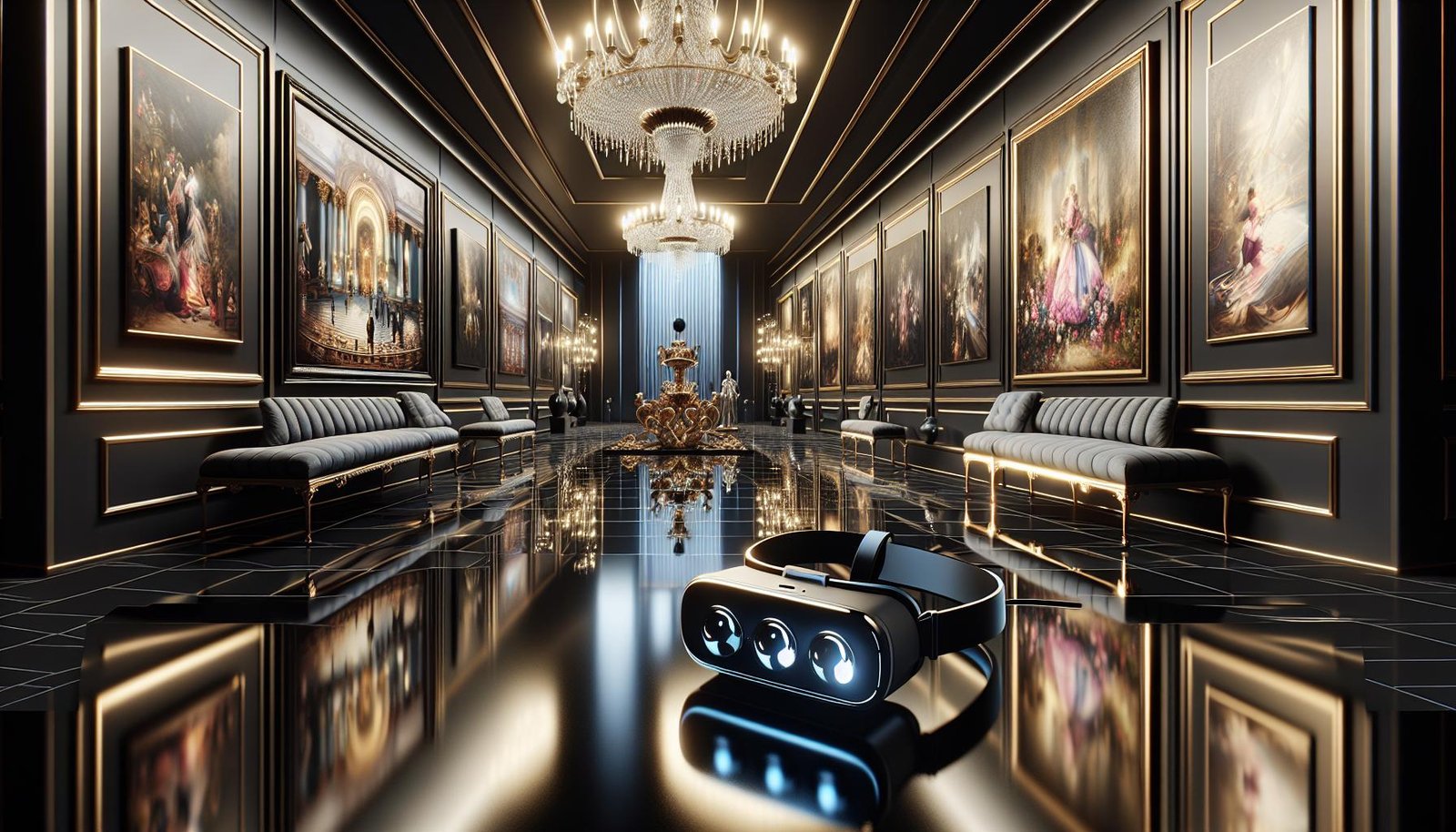Navigating the opulent world of luxury businesses on social media is no small feat. It’s a realm where brand image is everything, and the slightest misstep can echo across the digital landscape. That’s where I come in. As a social media manager specializing in luxury brands, I’ve learned that this is not just about posting glamorous photos or catchy captions. It’s an art form, blending the exquisite with the accessible, all while maintaining an air of exclusivity.
Crafting the perfect online persona for a luxury brand requires a delicate balance. You’re not just selling a product; you’re selling a lifestyle, an experience that’s both aspirational and attainable. It’s a fascinating challenge, one that demands a keen eye for detail and an unwavering commitment to the brand’s essence. Let me take you behind the scenes of what it really takes to shine in the luxurious world of social media.
The Role of a Social Media Manager in the Luxury Sector
In my years of experience working as a social media manager for luxury businesses, I’ve discovered that the role encompasses more than just posting content online. It involves a meticulous strategy to present the brand in a light that not only reflects its high-quality and exclusiveness but also fosters a community of enthusiasts and potential clients who aspire to the lifestyle the brand represents.
Firstly, crafting an online presence for luxury brands demands an exceptional eye for detail. Every post, story, and reply I curate is designed to mirror the brand’s ethos and heritage. Whether it’s showcasing the intricate craftsmanship of a product or offering a glimpse into the luxurious lifestyle associated with the brand, the content must always be impeccable and aspirational.
Secondly, engagement with the brand’s audience is paramount. My role involves interacting with followers in a manner that conveys the brand’s high standards of customer service. This means responding to inquiries and comments with the utmost professionalism and in a tone that aligns with the brand’s identity. Such interactions help build a loyal community that feels connected to the brand on a personal level.
Another critical aspect of my job is staying ahead of digital trends. The luxury market is constantly evolving, and so are the ways people consume digital content. I invest time in researching and implementing innovative and creative ways to present the brand, ensuring that it stands out in a saturated market. From leveraging the latest social media features to exploring emerging platforms, staying innovative keeps the brand relevant and engaging.
Lastly, I monitor and analyze the performance of the brand’s social media activities. This involves tracking metrics such as engagement rates, follower growth, and the overall performance of marketing campaigns. By understanding what resonates with our audience, I’m able to refine our strategy, making sure we’re always targeting the right demographics with the right message. This data-driven approach ensures that every decision contributes to enhancing the brand’s prestige and appeal online.
In essence, my role as a social media manager in the luxury sector is to bridge the gap between the brand’s rich history and its digital future. It’s about creating an online experience that’s as refined and exclusive as the brand itself, captivating the audience with every click. Through dedicated storytelling, strategic engagement, and innovative digital marketing, I work to position the brand at the forefront of luxury living, enticing a global audience to explore the sumptuous world it offers.
Essential Skills for a Social Media Manager in Luxury Businesses

In the challenging yet rewarding realm of luxury brand management, a social media manager’s role is pivotal. My experience has taught me that several key skills are crucial for excelling in this niche. These skills not only ensure effective brand representation but also play a significant role in crafting an aspirational lifestyle through online narratives.
Understanding Luxury Brand Identity
Firstly, it’s imperative that I possess a deep understanding of the luxury brand identity. This means recognizing the values, aesthetics, and unique selling propositions that set the brand apart in a crowded marketplace. My ability to translate this understanding into compelling social media content supports the brand’s exclusiveness and allure.
Mastery of Visual Storytelling
Visual storytelling stands at the core of luxury brand communication. My role involves curating and creating images, videos, and animations that resonate with the brand’s target audience. Crafting content that reflects the brand’s sophistication and attention to detail, all while maintaining the highest quality, is a must.
Acute Market Awareness
Staying ahead in the luxury market requires acute awareness of trends, not just within the fashion and luxury industry, but also in technology and social media innovations. My agility in adapting strategies based on these trends while encapsulating the timeless essence of the brand ensures the content stays relevant and engaging.
Precision in Audience Engagement
Engaging with the audience in a manner that upholds the brand’s prestige while making it approachable is a delicate balance. I focus on personalized interaction, recognizing and rewarding brand loyalty, and managing customer feedback with diplomacy and grace.
Analytical Competence
Data-driven decision-making guides the strategic direction of social media campaigns. My proficiency in analyzing performance metrics, competitor benchmarks, and audience insights allows for optimizing content strategy, enhancing engagement, and achieving measurable growth.
Expertise in Collaborative Campaigns
Finally, the luxury industry thrives on exclusivity and partnerships. My role often involves collaborating with influencers, creators, and other brands that align with the luxury ethos. Orchestrating these partnerships demands adept negotiation skills and creative synergy to produce campaigns that captivate and enchant the audience.
Excelling as a social media manager in the luxury business sphere requires a blend of artistic creativity, strategic thinking, and interpersonal skills. My journey in this field has been one of constant learning and adaptation, striving always to elevate the brand’s social presence with each curated post and interaction.
Challenges Faced by Social Media Managers in Luxury Businesses

Navigating the digital landscape as a social media manager for luxury brands presents its unique set of challenges. Despite the glamour associated with luxury businesses, the road to successful online engagement is paved with hurdles that require strategic navigation.
Firstly, striking the right balance between exclusivity and inclusivity stands as a paramount challenge. Luxury brands thrive on the allure of exclusivity, but social media inherently demands a degree of openness and accessibility. Crafting content that maintains this delicate balance requires a deep understanding of the brand’s core audience and creative finesse to appeal to potential customers without diluting the brand’s exclusive appeal.
Secondly, maintaining brand integrity across all platforms poses another significant hurdle. In the fast-paced world of social media, where trends come and go, ensuring that every post, story, and campaign aligns with the luxury brand’s values and image demands constant vigilance. This involves overseeing a consistent visual and narrative style that resonates with the brand’s aspirational lifestyle, all while adapting to the ever-evolving social media algorithms and features.
Thirdly, dealing with high expectations from both the brand and its followers adds to the pressure. Luxury consumers expect nothing short of perfection, and any misstep in communication can lead to swift backlash and a tarnished reputation. Meeting these high standards entails a meticulous approach to content creation and customer interaction, which often means going the extra mile to ensure every detail is flawless.
Fourthly, monitoring and responding to the competitive landscape is a relentless task. In luxury business social media management, there’s a constant need to stay ahead of competitors by being innovative in storytelling and engagement strategies. This calls for ongoing research, monitoring of competitors’ activities, and adaptation of successful tactics, all while keeping the brand’s unique voice and positioning at the forefront.
Lastly, proving the ROI (Return on Investment) of social media efforts in luxury markets is challenging. Given the long sales cycles and high price points typical of luxury goods, directly correlating social media activities with sales can be complex. Demonstrating the value of social media beyond just sales figures, through metrics like engagement rates and brand sentiment, requires a sophisticated approach to data analysis and reporting.
Key Strategies for Successful Social Media Management in Luxury Sector
Building on the understanding of the unique challenges faced by social media managers in luxury businesses, I’ve identified several key strategies that are critical for success in this distinctively demanding sector. My experience has taught me that success hinges not only on understanding the brand’s audience but also on meticulously crafting and executing a social media strategy that resonates with the brand’s luxury identity.
Establish a Consistent Brand Voice and Aesthetic
First and foremost, maintaining a consistent brand voice and aesthetic across all social media platforms is paramount. Luxury brands are synonymous with high quality and exclusivity, which means every post, story, and interaction needs to reflect these values. Tailoring content to mirror the brand’s essence while ensuring it’s visually compelling helps in strengthening brand recognition and establishing trust with the audience.
Leverage High-Quality, Engaging Content
Creating content that’s not only of high quality but also engaging is key. For luxury brands, this often means showcasing products and experiences through professional photographs and videos that highlight their craftsmanship and detail. Incorporating user-generated content, such as customer reviews and testimonials, adds authenticity, fostering a deeper connection with the audience.
Utilize Data to Personalize the Customer Experience
Personalization is at the heart of luxury. By diving deep into data analytics, I’ve learned to tailor social media content and campaigns to the preferences and behaviors of the target audience. Segmenting the audience based on their interactions and engagement allows for creating more personalized, relevant content that resonates with different segments, enhancing the overall customer experience.
Implement Strategic Social Listening
Engaging in social listening helps to stay ahead of trends and understand the competitive landscape. Monitoring mentions of the brand, its competitors, and industry keywords provides insights into the audience’s perception and emerging trends. This strategy not only aids in content creation but also in reputation management, ensuring the brand is perceived in the best light possible.
Foster Exclusive Communities
For luxury brands, fostering a sense of exclusivity and belonging can significantly enhance brand loyalty. Creating private groups or forums for top clients and engaging them with exclusive content, behind-the-scenes looks, and early access to new products makes them feel valued and part of an elite community.
Case Studies: Success Stories of Luxury Brands on Social Media

Moving forward from the strategies I’ve explored for social media management in the luxury sector, I find it crucial to shed light on some inspiring success stories. Luxury brands have managed to carve their unique spaces on various social platforms, and I’m excited to delve into these cases to illustrate how the right approach can yield remarkable results.
Chanel on Instagram
Chanel, a titan in the luxury fashion industry, has mastered the art of Instagram storytelling. By curating a mix of high-quality product shots, behind-the-scenes content, and iconic brand imagery, Chanel has cultivated an exclusive yet approachable online persona. This digital strategy not only showcases their products but also tells the brand’s rich history, attracting over 40 million followers. What makes Chanel’s success noteworthy is their ability to maintain the brand’s luxury essence while engaging a broad audience through visually captivating content.
Rolex and Twitter Engagement
Rolex’s approach on Twitter stands out by focusing on heritage and craftsmanship stories, effectively leveraging the platform for storytelling. By highlighting their watches’ design and manufacturing processes, Rolex educates their followers while keeping the brand’s prestige intact. This content strategy has not only helped Rolex in enhancing its brand value but has also engaged enthusiasts and collectors, fostering a community of loyal followers.
Tiffany & Co. on Pinterest
Tiffany & Co. took to Pinterest, an ideal platform for visual storytelling, to extend their reach. By pinning high-quality images of their iconic jewelry pieces alongside wedding and lifestyle inspiration boards, they’ve effectively targeted a niche market of luxury accessory lovers and those planning special occasions. Pinterest’s visual format serves as a perfect space for Tiffany & Co. to inspire and captivate, leading to significant engagement and conversion rates.
These case studies reveal that success on social media for luxury brands hinges on understanding and leveraging the unique aspects of each platform. Chanel’s visually compelling content on Instagram, Rolex’s focus on brand heritage and craftsmanship on Twitter, and Tiffany & Co.’s inspirational boards on Pinterest are testaments to the effectiveness of tailored social media strategies. Each brand utilized the platform’s strengths to communicate their legacy, craftsmanship, and the luxurious experience they offer, connecting with audiences and enhancing their digital presence. Through creative storytelling and strategic content curation, luxury brands can indeed thrive on social media, reinforcing their market position and engaging with a global audience.
Conclusion
Navigating the social media landscape as a luxury business requires finesse and a deep understanding of your brand’s unique space in the market. Through exploring the challenges and strategies of social media management, we’ve seen how essential it is to maintain a brand’s integrity while engaging with an audience that expects nothing short of excellence. The success stories of Chanel, Rolex, and Tiffany & Co. serve as inspiring examples of what can be achieved when a brand’s heritage and the power of social media converge. As I wrap up this discussion, I hope you’re feeling equipped with insights to elevate your social media presence, ensuring it reflects the luxury and sophistication your brand stands for. Here’s to creating connections that not only resonate with your audience but also enrich your brand’s legacy in the digital age.
Caterina has traveled the world first class, while earning money in side hustles like freelance writing, etsy stores and affiliate marketing. She loves helping other women achieve their financial dreams by teaching them how to plan and fund them.




